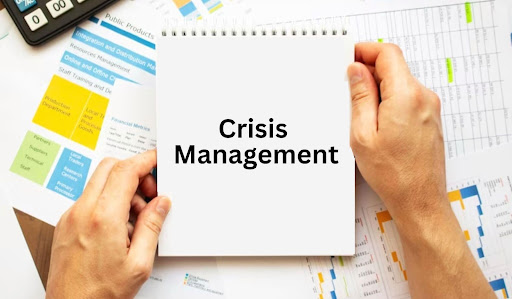Social media has become an integral part of our lives in today’s rapidly evolving digital landscape. It has transformed the way we communicate, share information, and interact with the world around us.
While social media offers numerous opportunities for connection and engagement, it also presents a myriad of challenges that can have significant personal, professional, and societal implications.
This article delves into the complexities of the digital landscape and explores how seeking professional crisis management firms support can be instrumental in navigating the various social media challenges.
The Power and Pitfalls of Social Media
Social media platforms have empowered individuals and businesses to connect with a global audience, share their stories, and promote their products and services. However, this power comes with a set of pitfalls that can potentially lead to crises:
Misinformation and Fake News: The ease of sharing information on social media has led to the rapid spread of misinformation and fake news, which can have serious consequences for public health, politics, and society at large.
Online Harassment and Cyberbullying: Social media provides a platform for anonymous users to engage in harassment and cyberbullying, causing emotional distress and even driving individuals to the brink of mental health crises.
Privacy Concerns: Personal information shared on social media can be vulnerable to data breaches, leading to identity theft, financial fraud, and other security issues.
Addiction and Mental Health Impact: The addictive nature of social media can contribute to decreased well-being, anxiety, and depression, especially among younger users.
Echo Chambers and Polarization: Social media algorithms can create echo chambers, reinforcing existing beliefs and contributing to societal polarization.
Recognizing the Need for Professional Support
As social media challenges continue to evolve, individuals and businesses alike are recognizing the need for professional support to navigate these complexities effectively. Here’s why seeking such support is crucial:
Expert Guidance: Professionals specializing in social media crisis management and digital communication can provide expert guidance on how to respond to various challenges, minimizing potential damage.
Crisis Prevention and Preparedness: Professionals can help individuals and businesses develop strategies to prevent crises from escalating and prepare them to handle unexpected challenges effectively.
Mental Health and Well-being: Psychologists and counselors can offer valuable support to individuals dealing with the negative mental health impact of social media, teaching coping strategies and promoting a healthier online engagement.
Legal and Reputation Management: Legal experts can guide individuals and businesses through potential legal issues arising from online interactions, while reputation management specialists can help mitigate damage to one’s personal or professional image.
Types of Professional Support
Various professionals can contribute their expertise to navigating the digital landscape’s challenges. Here are some key areas where crisis management agency support can make a significant difference:
Social Media Crisis Management
Real-time Monitoring: Professionals can continuously monitor social media platforms to detect any potential crisis situations or negative sentiment.
Strategic Response Planning: Developing a well-defined plan for responding to crises, including messaging, timing, and engagement strategies.
Engagement and Communication: Effectively engaging with the audience during a crisis, providing accurate information, and addressing concerns to maintain trust.
Reputation Repair: Developing strategies to rebuild a tarnished personal or professional reputation through targeted online efforts.
Mental Health and Well-being Support
Digital Detox Strategies: Psychologists can guide individuals on setting healthy boundaries and incorporating digital detox practices into their routine.
Mindfulness and Stress Reduction: Techniques for managing stress and anxiety related to social media, fostering a healthier online experience.
Counseling and Therapy: Offering online counseling and therapy sessions to address the emotional toll of online harassment or other negative experiences.
Educational Workshops: Conducting workshops to raise awareness about the potential risks and benefits of social media, teaching individuals how to navigate the online world more effectively.
Legal and Reputation Management
Legal Guidance: Advising individuals and businesses on potential legal actions in cases of defamation, privacy violations, or intellectual property disputes.
Cease and Desist Actions: Taking legal measures to halt online harassment or the spread of false information.
Reputation Repair: Developing strategies to rebuild a tarnished personal or professional reputation through targeted online efforts.
Media Training: Providing media training to individuals and businesses to help them communicate effectively during crises and maintain a positive public image.
Conclusion
The digital landscape’s challenges are multifaceted and ever-changing, requiring individuals and businesses to adapt and seek professional support to navigate effectively.
By recognizing the need for crisis management service assistance and embracing professional support, we can confidently navigate the complex terrain of the digital landscape, turning challenges into opportunities for growth and resilience.
As we continue to engage with social media, let us do so with a proactive approach and a commitment to seeking the professional support that can make all the difference.














